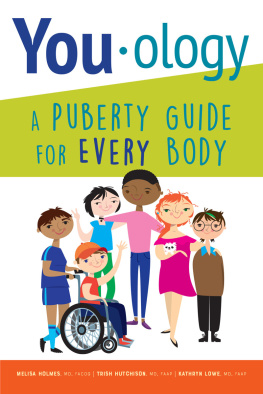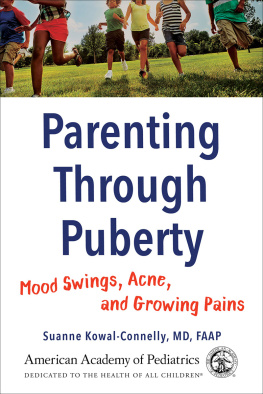

E-book published in 2012 by Encyclopdia Britannica, Inc., in association with Arcturus
Publishing Limited, 26/27 Bickels Yard, 151-153 Bermondsey Street, London SE1 3HA.
Britannica, Encyclopdia Britannica, and the Thistle logo are registered trademarks of
Encyclopdia Britannica, Inc.
ISBN 978-1-61535-659-1 (e-book)
This edition first published in 2010 by Arcturus Publishing
Distributed by Black Rabbit Books
P.O. Box 3263
Mankato, Minnesota 56002
Copyright 2010 Arcturus Publishing Limited
The right of Jillian Powell to be identified as the author of this work has been asserted by
her in accordance with the Copyright, Designs, and Patents Act 1988.
All rights reserved
Planned and produced by Discovery Books Ltd.
www.discoverybooks.net
Managing editor for Discovery Books: Rachel Tisdale
Editors: Amy Bauman and Juliet Mozley
Designer: D. R. ink
Consultant: Xanthe Fry, School Counselor and Educational Consultant
Picture researcher: Tamsin Osler
Library of Congress Cataloging-in-Publication Data
Powell, Jillian.
Puberty / Jillian Powell.
p. cm. -- (Teen FAQ)
Includes index.
1. Puberty--Juvenile literature. I. Title.
QP84.4.P69 2011
612.661--dc22
2010012715
Picture Credits
Bubbles Photo Library: 6, 37 (Chris Rout). Corbis: cover (Mark Seelen), 11 (James Jeynse), 15 (amanaimages), 16 (Josef Lindau), 17 (Image Source), 21 (Pinto), 42 (Erik Isakson), 43 (Kate Mitchell). Discovery Photo Library: 9 (Chris Fairclough). Getty Images: 19 (Tetra Images), 25 (Datacraft), 26 (David Grossman/Workbook Stock), 30 (John Giustina/Iconica). Istockphoto.com: 23 & 45 (Joselito Briones), 34 (Galina Barskaya), 38 (VMJones), 41 (Linda Kloosterhof). Science Photo Library: 22 (Dr. P. Marazzi). Shutterstock: 7 (Monkey Business Images), 9 right (Lev Olkha), 13 (Magdalena Zurawska), 14 (Monkey Business Images), 29 (Yuri Arcurs), 35 (kojoku), 40 (Martin Novak).
Every attempt has been made to clear copyright. Should there be any inadvertent omission, please apply to the copyright holder for rectification.
SL001460US
Supplier 03, Date 0510
Contents
1 Whats puberty about?
You do your fastest growing during the first year of your life, and then during puberty. About two years before you notice any physical changes, your brain is getting you ready for puberty. Beginning as early as age eight in girlsand two years later, on average, in boysthe brain sends signals for hormonal changes that stimulate puberty. This is the period of physical and sexual development as your body matures into that of an adult.
The first sign of puberty occurs on average at age 11 in girls, with menstruation following about two years later. Signs in boys generally start about two years later, although in some cases puberty may not begin until about the age of 15.
 WHAT ARE HORMONES?
WHAT ARE HORMONES?
Hormones are chemicals made by one part of your body (glands) that are carried around in the bloodstream to act on different parts of the body. Hormones work by triggering changes in target cells, which have special hormone receptors. For example, the pituitary gland makes growth hormones that stimulate the bones in your feet, arms and legs to grow longer.

The chemical changes that trigger puberty begin happening while you are asleep.
Night action
No one knows why, but puberty begins when you are asleep! Cells in the brain begin sending chemical signals in the form of hormones in your bloodstream. They begin the changes we call puberty.
Growth spurt
Puberty triggers a growth spurt, and youre suddenly growing bigger and taller. On average, a young persons height increases by around 10 inches (25 cm) during puberty. Many find their arms and legs grow first, making them look and feel a bit gangly or clumsy until the rest of the body catches up. You may find you quickly outgrow clothes and shoes and you can feel tired and need more sleep as your body uses energy for growing. Girls keep on growing until they are around 17 years old, and some boys continue growing until they are 19 or 20.
Sex hormones
During puberty, your body is preparing for sex and reproduction. Your body begins producing sex hormones. Both boys and girls have a mix of male and female sex hormones, although boys have mainly male hormones and girls have mainly female hormones. These hormones bring about changes not just in the way your body looks but also in how you feel.
We often have the illusion that we are in control of our bodies. The reality is it is usually our biology that controls us. That is particularly obvious during the great rollercoaster ride of puberty.
Professor Robert Winston, British medical doctor, scientist, television personality, and politician
ORIGIN
One sign of puberty is the increase of body hair in girls and boys. The word puberty means to be covered in fine hair and comes from the Latin word pubescere, meaning to grow hairy.

Peer groups bond closely as young people share the pleasures and pitfalls of growing up.
2 Body changes: girls
If you are a girl, as your body goes into puberty, hormones start to work on your ovaries and adrenal glands so they begin to produce female sex hormones called estrogen and progesterone. These hormones bring about changes in your body.
HEALTH WARNING
It is normal and healthy to put on some weight during puberty (see Body weight, page ). Dieting to lose weight is not advisable unless a doctor has diagnosed a young person as overweight or obese. There are many health risks associated with not eating a balanced diet. Lack of vitamins and minerals (many found in fruit and vegetables) can cause problems such as:
depression and irritability
anemia
tiredness and difficulty sleeping
aching joints and muscle weakness
bone and tooth decay
skin problems
nausea and vomiting
headaches.
First signs
The first signs of puberty can begin any time between the ages of 8 to 13. You have a major growth spurt. Your body grows taller and starts to change shape as you become curvier and put on weight around the hips and middle. Your breasts begin to grow, showing as small swellings or buds under the nipples.
The vulva (the part of the body outside the vagina) begins to develop as labia (the lips around the vagina) grow. You will also begin to notice a sticky clear or white discharge from your vagina. This can be a sign that your periods (see page ) will soon start.
Next page









 WHAT ARE HORMONES?
WHAT ARE HORMONES?
